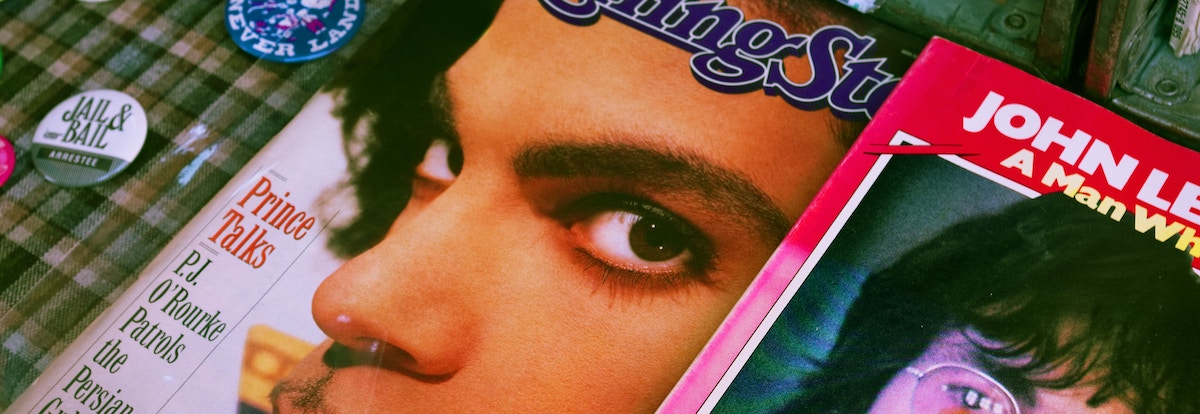“I’ve never been a Prince fan but after hearing this panel discussion I am so inspired!” Tom the audio-visual technician, 24, wasn’t even a glint in his parents’ eye when the star donned his shiny trench coat and sat astride a pumping motorcycle.
But after the first day’s deliberations at Purple Reign, the world’s first interdisciplinary academic conference on the legendary musician’s life and legacy, Tom’s completely sold.
He’s not alone. More than 60 researchers presented their findings on everything from Prince’s hit records to his high heels over two densely-packed days and nights of deliberations. Even Dez Dickerson, Prince’s one-time lead guitarist from The Revolution, rocked up and sprinkled purple stardust over the event, jointly hosted by University of Salford and Middle Tennessee State University.
Eyebrows are often raised when pop culture phenomena, be they musicians or TV series, attract critical scrutiny. People may scoff at the idea of a group of indulged academics squandering bloated expense budgets on pet pursuits. But in the coffee breaks as we exchanged email addresses, it was clear how many had crossed the globe at their own expense.
As an undergraduate student back in the 1980s, I made the controversial decision to do my dissertation on the pop star Prince.
While my classmates pondered pressing questions of political economy, media ethics and regulation, I burnt the midnight oil wearing out VHS tapes of Purple Rain. A part-time MA and PhD on the star followed, done in the evenings and weekends while juggling work and toddlers.
Prince offered me a lifeline
Why put myself through this? Because as a young working class female growing up in a depressed northern town, Prince offered a lifeline; the inspiration to crash through any barriers. His own inauspicious and troubled background is a masterclass in overcoming racism, trauma and bullying over his height to achieve success.
I spoke to many others who, like me, struggled to find academic publishers willing to make their scholarship permanent. Yet their work is no less empirically rich, methodologically-sound or relevant than studies of Mozart. Their interrogations spanned musicology, philosophy, psychoanalysis, visual culture, gender, ethnicity and sexuality.
The topics were tangible, not esoteric: His connections with black labour activism and the radical tradition were under the spotlight. His battles with the corporate music megaliths in the 1990s, which he won by dropping his name for an unpronounceable symbol, provided rich insight into commercial law. It wasn’t sycophantic hero-worship: serious questions were addressed, especially regarding homosexuality and misogyny.

A banner advertising the conference.
I was also struck by how diverse and global the delegate list is. Ivy League scholars mingled with fans and rock stars. One man, James, visited from the USA to proffer perspectives from African studies, rather than the privileged white Western discourses that dominate student reading lists here in the UK.
I also met scholars from Russia and Poland: “Imagine listening to Prince under Putin? You cannot begin to image how much we feel personally liberated by his music.”
PhD student Scarlett, accompanied by her super-fan dad, spoke personally about how Prince taught men to value women as equals and helped her father know how to equip her with life skills as a young teenager.
No ‘easy options’
The ubiquity and popularity of stars such as Bowie, Beyoncé and Kanye can tell us much about everything from death to digital technology.
But the biggest value of these gatherings is the way they challenge the status quo of academic ‘value’. To dismiss pop culture phenomena as less worthy or ‘important’ is to totally miss the fact that higher education is meant to be more inclusive than ever.
Indeed, an oversubscribed black feminist course on the politics of Beyoncé was cancelled at Rutgers University in the US because it was so popular it threatened other modules.
Yet this was no ‘easy option’ – it centred on the complex theories of Foucault and Deleuze, although, unlike some courses, it made those critical studies relevant to the lived experiences of the participants, be they black and/or working class.
Interrogating these objects of study exposes outdated, outmoded and elitist academic discourses which exclude a diversity of voices. They serve as a wake-up call to outmoded higher education structures, syllabi and research funding barriers.
As buildings across the city were lit up in the late icon’s signature colour, we held silences in tribute to fellow music fans who lost the lives at Manchester Arena, a venue Prince loved. The music research beat must go on.
Photo by Doyoun Seo on Unsplash












